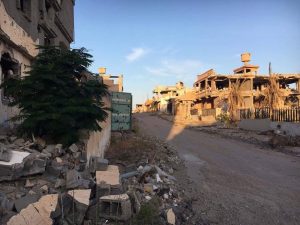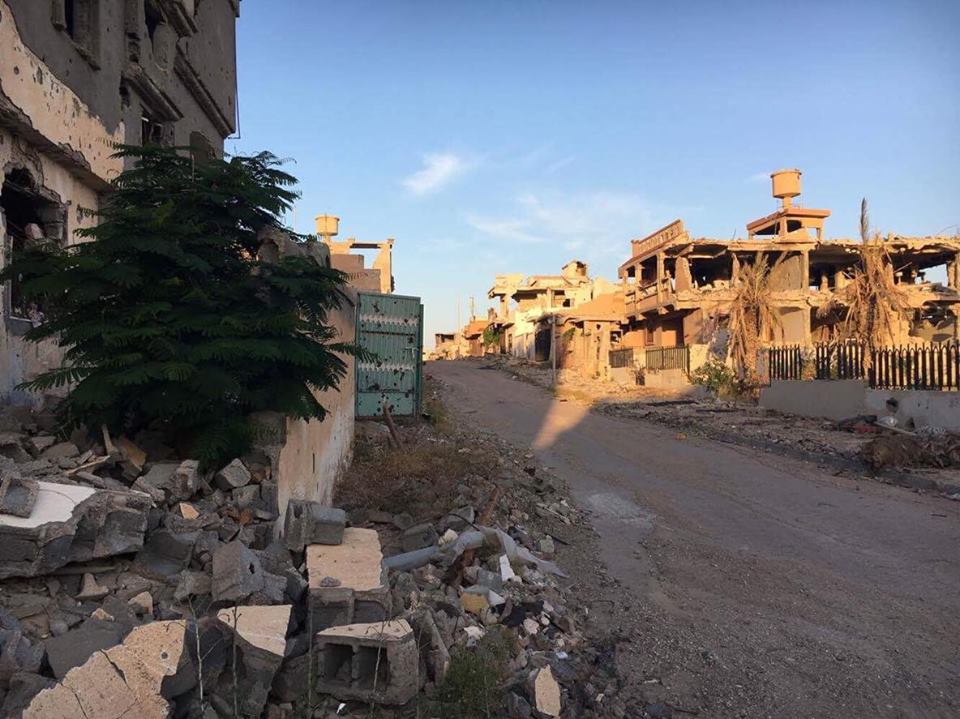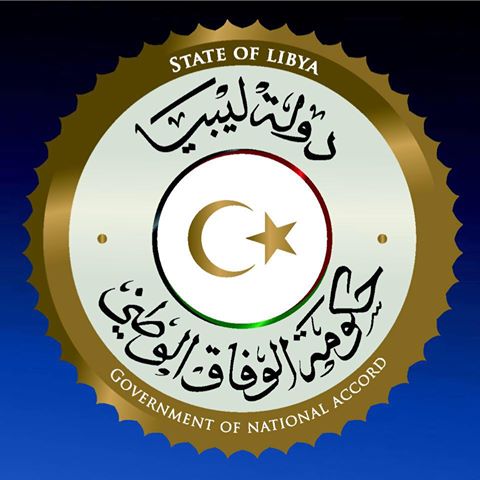By Moutaz Ali and Farah Waleed.

Sirte, 10 June 2017:
“There is nothing here; only deception, robbery and oppression,” said a Sirte municipal councillor of his devastated town almost six months after it was wrested from the control of the so-called Islamic State (IS).
For almost two years, it had been IS’s North African stronghold before it was freed last December by Bunyan Marsous forces loyal to the Presidency Council (PC) and aided by western airstrikes and special forces.
However, the joy of its displaced residents going home and their dreams of resuming normal life have rapidly disintegrated.
Newly-returned locals have been shocked not only by the serious damage to most of the buildings but by the complete lack of basic services, These include almost zero mobile coverage, parlous health services and an acute shortage of cash.
On any given morning people can be seen scattered around the suburbs of the town, searching for a mobile signal to call relatives and friends. This epitomises their difficult existence; they are not only isolated from the international world but from their own country too.
Saied, a 40 year-old father of four boys, is notably nervous as he searches around from place to place for a mobile signal. He has to talk to friends in Misrata to find out if he can collect a portion of his salary. Only then will he drive the 200 km to Misrata.
He talks loudly into the phone. But also he is cautious, angry and tense. He has to make this long drive every week to join a lslow-moving queue and finally pick up no more than $35.
“One of my sons is ill and I have to buy him medicine from Misrata every week at $15. I purchase eggs, milk and bread with the rest of the money,” he said.
The stricken town has witnessed much bloodshed since 2011. It started after Qaddafi took shelter in his hometown during the final stages of the Revolution when rebels attacked Sirte from the west and the east, as NATO warplanes circled and bombed from above.
Then Sirte fell under the control of Islamist terrorists, first Ansar Sharia and then from 2014 IS. The town’s isolation was the more complete because elsewhere in Libya, its people were seen as Qaddafi loyalists.
The widespread destruction becomes clear when entering Sirte from the east. Remnants of the successive battles are plain to see, with the university’s walls still damaged and its gates blocked by sand barriers.
Spent bullet casings, shards of broken glass and piles of rubble litter the sidewalk and obstruct pedestrians. The typical view is of containers and sand barriers blocking roads heading to the town centre. Young volunteers do their best to clean up with their own tools and equipment.
It is not just bullet holes that pepper the town’s walls; so too does a range of graffiti, some extolling Qaddafi, some the Revolution and some IS. The slogans symbolise the succession of tragedies that has hit Sirte.
Even though the fighting is supposedly over, armed men are still on the streets. The frequent checkpoints are manned by men who do not resemble regular soldiers. Toyota pick-up trucks with guns mounted on the back patrol regularly.
Just how depressing life is for the locals can be seen in the miserable, despairing and uneasy expressions on the people’s faces.
After sunset, everything shuts down and locals remain at home fearful of criminals.
“I close my shop at 7:30 pm and head home immediately because, after this time, the city becomes a stage for ghosts and thieves,” said Ahmed, a 28 year-old shop owner.
The neighbouring proprietor Adel, who sells clothes, is struggling to resume his business. His last shop was damaged during the 2011 revolution and robbed during the battle to oust IS.
The main hospital, Ibn Sina, operates at a minimum level and lacks the most essential equipment. No clinics are open.
Mohamed, who married recently, is very worried about the health of his pregnant wife. He has been advised to travel and see doctors in another town. But he is afraid that when his wife gives birth he wont be able to afford to stay for even a couple of nights.
Yet despite the dark times, the people of Sirte are rallying round, not least in schools. Not all teachers have yet returned, so volunteers are filling the gaps. One such, 25 year-old Aisha, who has a certificate in computer science, is teaching maths. “I am not the only one who volunteers in this school” she explained, “a third of our teachers are unpaid volunteers like me.”
Many regular teachers had not come back, she said, because their homes had been damaged or completely destroyed. “It is the same thing for students” she added, “There should be 2,000 students attending but only 500 have been able to return.”
The good news is that Sirte’s radio station will reopen shortly. “After exhaustive efforts with various governmental and non-governmental boards,”said Radio Sirte’s Sharef Eddin Zelitny, “we have managed to begin maintenance of the station, but we are still waiting for some equipment before we can get back on air”.







